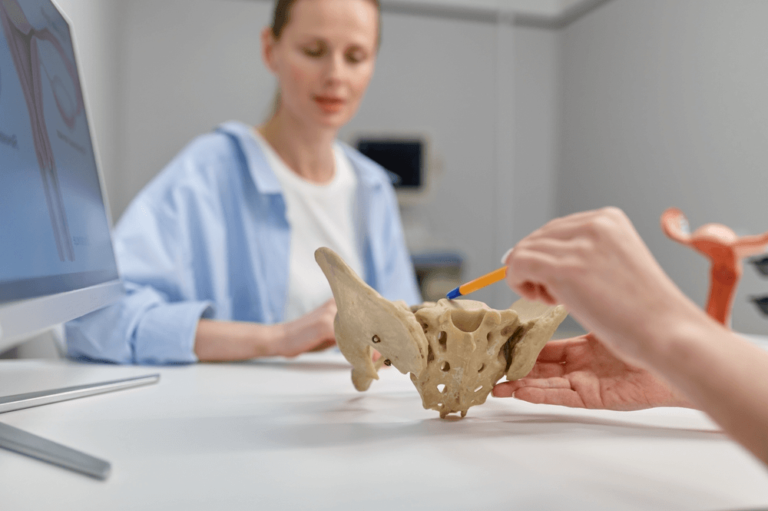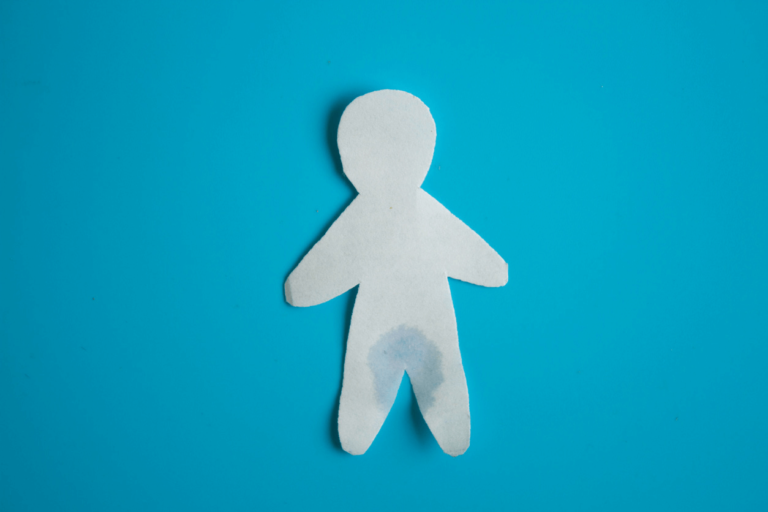What to Eat During Pregnancy for a Healthy Baby

Eating right is key during pregnancy to help your baby grow well. Knowing what to eat is important. A diet full of good nutrients is essential for a healthy pregnancy. You’ll need about 300 extra calories a day in the last 6 months.
The U.S. Department of Health and Human Services says to eat lots of complex carbs like whole grains. They give you energy for a long time. Also, eat 8 to 12 ounces of low-mercury fish a week and drink 6 to 8 glasses of water daily. Planning your diet carefully is important for a healthy pregnancy.
Key Takeaways
- A well-balanced diet is essential for a healthy pregnancy
- Complex carbohydrates, such as whole grains, promote longer-lasting energy
- Consume 8 to 12 ounces of low-mercury fish per week for a healthy pregnancy
- Drink six to eight glasses of water per day to stay hydrated during pregnancy
- A healthy pregnancy diet requires careful planning and a nutrition during pregnancy guide
- A pregnancy guide should include information on nutrition during pregnancy for a healthy baby
- Following a healthy pregnancy diet can help support the baby’s growth and development
Essential Nutrients for Your Pregnancy Journey
During pregnancy, it’s vital to eat the right nutrients for your baby’s growth. Folic acid, iron, calcium, and vitamin D are key. The Mayo Clinic says these nutrients help prevent birth defects and keep your baby healthy.
Key Vitamins and Minerals Your Baby Needs
Here are some important nutrients to add to your diet:
- Folic acid: helps prevent neural tube defects
- Iron: supports the production of red blood cells
- Calcium: important for bone development
- Vitamin D: key for bone health and immune function
Understanding Daily Nutritional Requirements
To meet your nutritional needs, knowing your daily requirements is key. Calcium is important for strong bones and teeth. Eating foods high in iron and folic acid can also prevent pregnancy issues. By focusing on these nutrients, you support your baby’s growth and ensure a healthy pregnancy.
Building Your Pregnancy Meal Plan
Creating a pregnancy meal plan is key to getting the right nutrients for a healthy pregnancy. A balanced diet with foods from all groups is vital. The American College of Obstetricians and Gynecologists suggests eating 6-11 servings of grains, 2-4 servings of fruit, 4 or more servings of veggies, 4 servings of dairy, and 3 servings of protein.
A good pregnancy meal plan also means eating healthy. This includes keeping fat intake under 30% of daily calories and cholesterol under 300 mg. Drinking lots of water and limiting caffeine to 300 mg or less is also important.
- Whole grains, like brown rice and quinoa
- Lean proteins, such as chicken and fish
- Healthy fats, like avocado and nuts
- A variety of fruits and vegetables, like berries and leafy greens
By eating a balanced diet and following healthy habits, you can support a healthy pregnancy. This helps your baby grow and develop well. Always talk to your healthcare provider to make a meal plan that fits your needs.
Foods to Embrace During Pregnancy
When you’re pregnant, it’s key to eat foods that are full of nutrients. Protein-rich foods like lean meats, fish, and eggs are important for your baby’s growth. The U.S. Department of Health and Human Services recommends eating these foods. They also suggest adding healthy fats from nuts and avocados to support your baby’s brain and eye development.
Complex carbohydrates like whole grains give you energy and fiber. They are essential for a balanced diet during pregnancy. A good meal combines protein, fats, and carbs, like eggs with toast or pasta with lean meatballs.
- Lean meats like chicken and turkey
- Fatty fish like salmon, which is rich in omega-3 fatty acids
- Eggs, which are a significant source of choline, vital for brain development
- Nuts and seeds, which are rich in healthy fats and fiber
- Whole grains like brown rice, quinoa, and whole-wheat bread
Eating these foods supports your baby’s growth and your health. It helps ensure a healthy pregnancy.
What to Eat During Pregnancy for a Healthy Baby: Trimester-Specific Guide
As you go through pregnancy, it’s key to know your body’s changing needs. A trimester-specific guide helps you make smart food choices. The Mayo Clinic says a good pregnancy nutrition plan is vital for your baby’s growth.
In the first trimester, you don’t need extra calories. But, in the second and third trimesters, you’ll need about 340 and 450 more calories each day. Also, take a prenatal supplement with 400 to 800 mcg of folic acid to avoid birth defects.
- 5 portions of fruits and vegetables daily
- Starchy foods making up just over 1/3 of your total diet
- 2 portions of fish per week, including 1 portion of oily fish
- Low-fat dairy products, such as semi-skimmed or skimmed milk
Try to eat less sugary foods and drinks. Also, avoid raw or undercooked fish, meats, and eggs. By following atrimester-specific guideand focusing onpregnancy nutrition, you can have a healthy pregnancy and help your baby grow well.
Pregnancy is a unique time, and your dietary needs change throughout this journey. By making informed choices, you can nurture your baby and set them up for a healthy life.
Understanding Blood Sugar and Pregnancy
During pregnancy, keeping an eye on your blood sugar is key to avoid gestational diabetes. The American Diabetes Association says gestational diabetes is when blood sugar is too high during pregnancy. It happens in about 2% to 10% of pregnancies in the U.S.
To handle gestational diabetes, eating right is important. You should have 6 or more servings of grains, beans, and starchy veggies. Also, aim for 3 to 5 servings of veggies and 2 to 4 servings of fruits. Dairy should be 4 servings a day, and protein 2 to 3 servings.

Some tips to keep blood sugar in check include eating small to moderate meals and snacks. Limit milk to one 8-ounce cup at a time. Stay away from sugary drinks and sweets. Adding high fiber foods like whole grains, split peas, lentils, and beans can help keep blood sugar low.
By following these tips and watching your blood sugar, you can manage gestational diabetes well. It’s vital to work with your healthcare provider to make a plan for your blood sugar. This way, you can have a healthy pregnancy and avoid any problems.
Smart Snacking Strategies for Expecting Mothers
As an expecting mother, it’s key to focus on smart snacking. This helps manage your blood sugar and supports your baby’s growth. A good gestational diabetes diet plan guides you in making the right choices. The Academy of Nutrition and Dietetics suggests snacks like fruits, nuts, and yogurt. These help keep blood sugar stable and offer important nutrients.
Some healthy snack options include:
- Fresh fruits, such as apples and mangoes, which are rich in fiber and antioxidants
- Nuts and seeds, like almonds and pumpkin seeds, which provide healthy fats and protein
- Yogurt, specially Greek yogurt, which is high in protein and calcium
Always mix snacks from at least two food groups to stay full between meals. For instance, try whole-grain crackers with hummus and cucumber slices. This combo is both filling and nutritious. By adopting smart snacking habits, you can control your blood sugar and have a healthy pregnancy. All this while sticking to a well-thought-out gestational diabetes diet plan.
Navigating Food Safety During Pregnancy
As you go through your pregnancy, keeping food safe is key. It helps protect you and your baby. Knowing which foods to avoid and how to cook them safely is very important.
The Centers for Disease Control and Prevention (CDC) has guidelines for food safety during pregnancy. They tell you which foods to stay away from and how to cook safely. For instance, they advise against eating undercooked meat, unwashed veggies, and high-mercury fish like swordfish and shark.
Foods to Avoid While Pregnant
- Undercooked meat, like pork, lamb, and venison
- Unwashed veggies, which might have toxoplasmosis
- High-mercury fish, such as swordfish, shark, and king mackerel
- Raw or undercooked eggs, which could have Salmonella
- Unpasteurized milk and dairy, which might have Listeria
By following these tips and being careful with food, you can have a healthy pregnancy and a healthy baby. Always remember to prioritize food safety. This will help protect your health and your baby’s health.
Managing Morning Sickness Through Diet
As you navigate your pregnancy diet, you may encounter morning sickness. This symptom affects nearly 75% of women. It usually starts between the first 4 to 6 weeks and improves by week 14. To ease its symptoms, include foods rich in protein, complex carbohydrates, and healthy fats in your diet.
A balanced pregnancy diet can help manage morning sickness. The American Pregnancy Association recommends a diet rich in protein, complex carbohydrates, and healthy fats. Foods like chicken and peanut butter can calm nausea by increasing the hormone gastrin, which aids digestion. Cold foods, like those in the B.R.A.T. diet (bananas, rice, applesauce, and toast), are easy to digest and absorb stomach acids, making them a great option.
Some natural remedies can also help with morning sickness. Ginger has been used for centuries in Chinese medicine to treat nausea and vomiting. Citrus scents, like lemon, and peppermint have also been traditionally used to help alleviate morning sickness symptoms. By adding these foods and remedies to your pregnancy diet, you can better manage morning sickness and support your overall health and your baby’s development.
Some key foods to include in your diet to help manage morning sickness are:
- Fruits and vegetables with high water content, such as watermelon, cucumbers, and tomatoes
- High-protein foods like chicken and peanut butter
- Cold, easy-to-digest foods like bananas, rice, applesauce, and toast
Staying Hydrated While Expecting
When you’re pregnant, drinking enough water is key. It helps your baby grow and stay healthy. The American College of Obstetrics and Gynecology suggests drinking 64 to 96 ounces of water daily.
About 20% of your water needs come from solid foods. But, it’s important to drink water often. This way, you won’t feel thirsty too often. You can also drink milk and juice to help meet your hydration needs.
Daily Water Requirements
The Institute of Medicine says pregnant women should drink 8-10 cups (64-80 ounces) of water each day. Watching your urine can also help you know if you’re drinking enough water. If your urine is pale yellow, you’re good. But, dark yellow means you need more water.
Healthy Beverage Choices
Drinking water isn’t the only way to stay hydrated. Milk and juice are good choices too. Just remember, don’t have too much caffeine, about 300 milligrams a day. You can also eat watery fruits like watermelons and cucumbers to help with your hydration.
Drinking enough water is very important when you’re pregnant. Not drinking enough can cause headaches, dizziness, and constipation. It can also lead to low amniotic fluid and Braxton-Hicks contractions. By drinking plenty of water and choosing healthy drinks, you help your baby grow strong and healthy.
Conclusion: Nurturing Your Baby Through Healthy Eating
Starting your pregnancy journey means focusing on a healthy diet for your baby’s growth. This article offers tips to ensure your baby gets the nutrients they need. From folic acid and iron to staying hydrated, every part of your diet matters.
Eating a variety of foods like lean proteins, whole grains, fruits, and veggies is key. It helps your body and baby get the necessary building blocks for a strong start. Also, balancing macronutrients like healthy fats, complex carbs, and protein is important for a healthy pregnancy.
Working with your healthcare provider and a registered dietitian can help create a meal plan just for you. Healthy eating during pregnancy nourishes your baby and sets them up for a lifetime of wellness.






